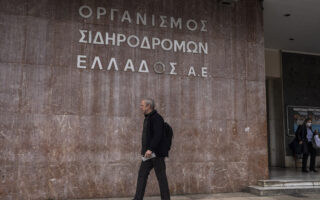Fustanellas and veladas

Modern Greece’s first populist prime minister, Ioannis Kolettis, wrote that “[Alexandros] Mavrokordatos perceived Greece as Europe and the proof of this is the constitution of his government…”
“Mavrokordatos turned his gaze around the chamber and, seeing people wearing the velada [a European formal coat], speaking English and French, he said: ‘Behold the Greek nation and by it my government shall be born.'”
“But, my dear,” wrote Giorgos Mavrogordatos in an excerpt from his book about the divisions in Greece, “the Greek nation is not the nation that meets in the chamber of Mavrokordatos, but the nation that meets in the chamber of Koletti; the Greek nation neither wears the velada nor speaks French or English; it wears fustanellas, and sometimes speaks Albanian and Vlach, and maintains the manners of tyranny [Turkish occupation] which will not be eradicated at once; for, however much the intelligentsia may cry, nations do not self-improvise. Hence of this nation, therefore, of the nation of my chamber, he ought to receive ministers.”
When I read this passage again in Mavrogordatos’ book, I was puzzled.
Why? Because seemingly in Tempe it was the stationmaster who came out of Koletti’s chamber. But it is not that simple.
In modern Greece it has been shown that there are many who wore a velada, spoke English and French, but ruled as if they were wearing a fustanella. And, also, as if they were preserving the manners of the Turkish rule.
It doesn’t matter which school they finished or which elite they came from. Quite the opposite: They forgot what they may have learned in good schools at home and abroad, and under the excuse that “this is the people” followed the convenient lowest common denominator rule. A prime, but not unique, example of this is Andreas Papandreou. The current prime minister does not belong to this category, he has ambition for the country.
However, the big challenge has always been to single out and to mobilize the best talents who do not have an elite background, but have instead graduated from a public school and university and who can perform any task with professionalism and dedication. There are plenty of candidates who match that profile, particularly among the younger generations. The chasm separating the two Greeces is painfully evident when you compare civil servants or police officers that have joined the public sector via the Supreme Council for Civil Personnel Selection, better known here as ASEP, to those who just sat through a bogus exam or simply bribed their way in with the help of an olive oil container.
We have come a long way since the days of Kolettis. In many respects, we have nothing really to envy our European peers. The average Greek would feel very uncomfortable in the “Kolettis room.” However, no reform will ever succeed, no train will ever be safe, until solid leadership is in place at all levels and a state apparatus made up of the people who rely on the train to travel to and from university.





